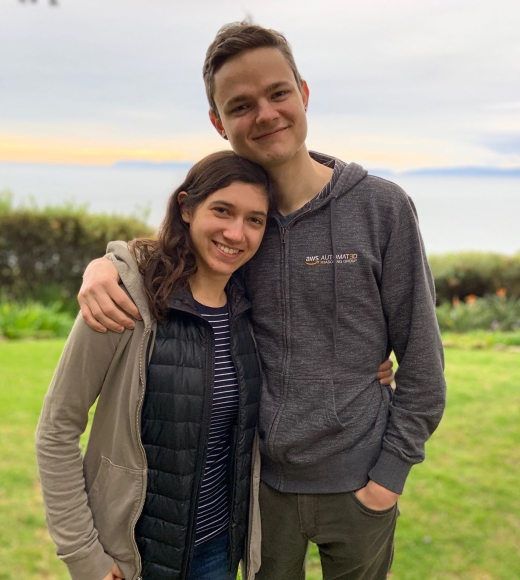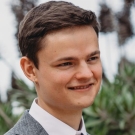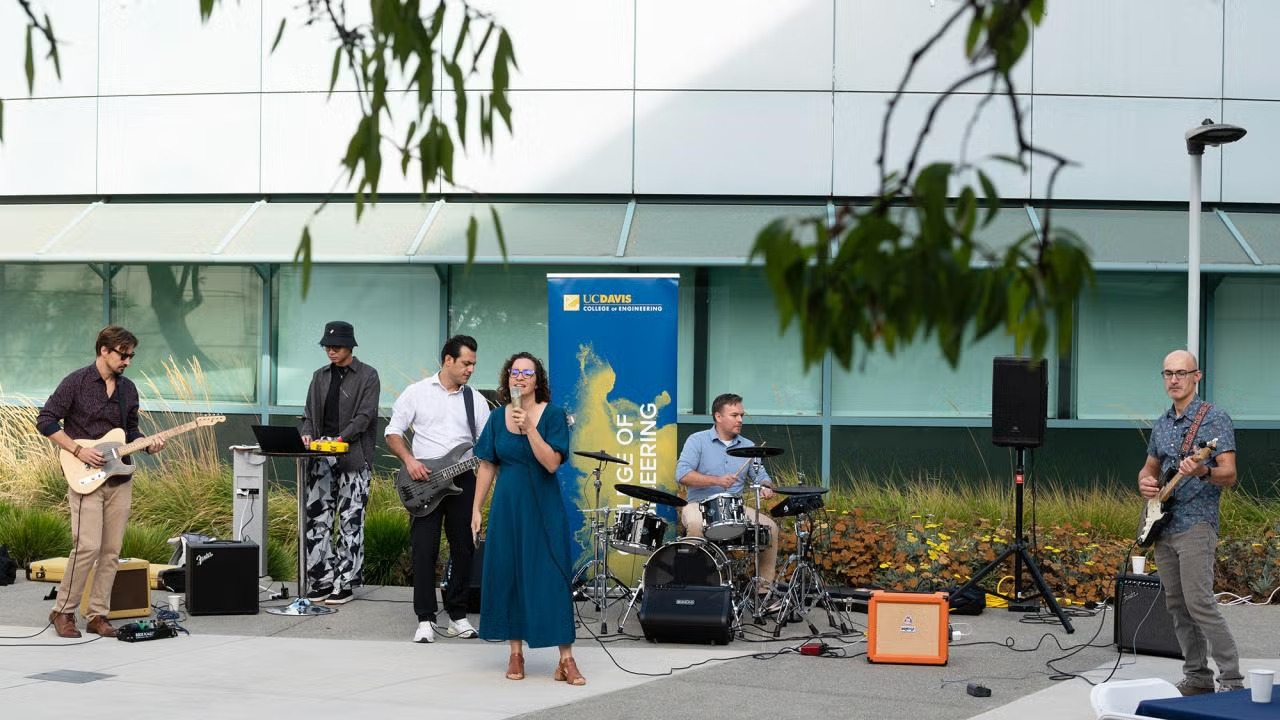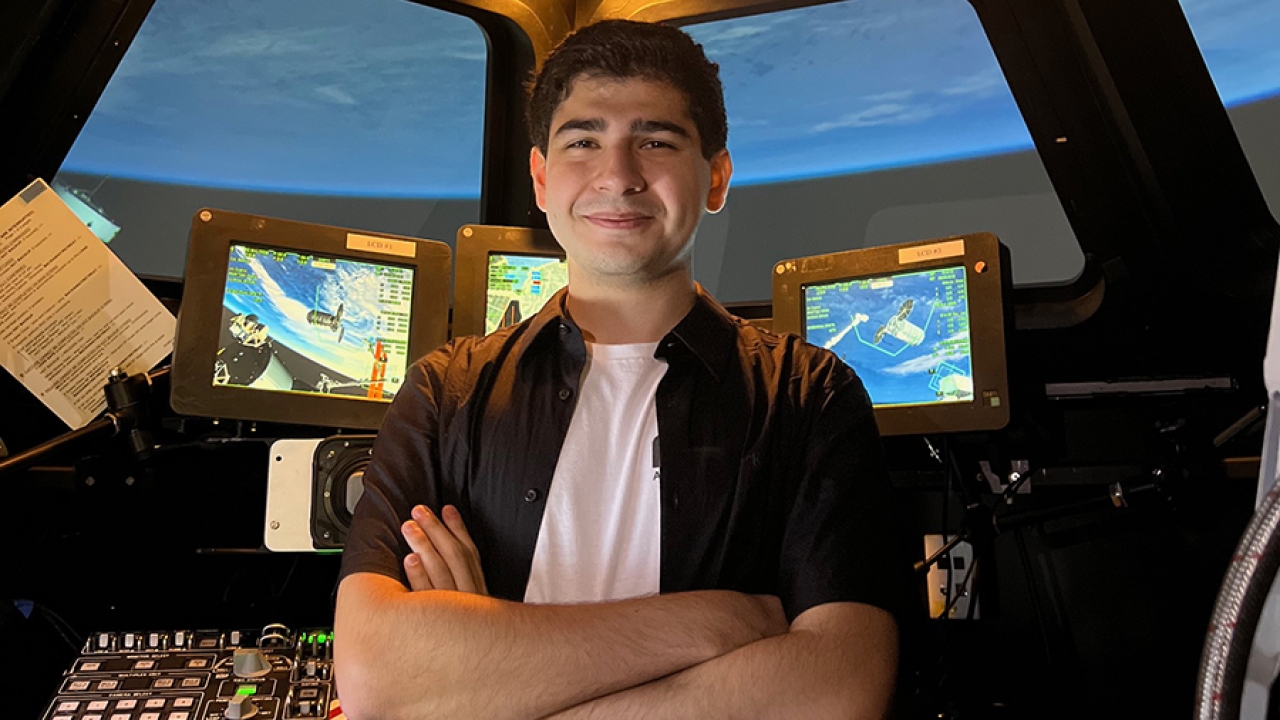Caleb Stanford Finds Elegant Solutions to Technical Problems
New Computer Science professor aims to solve issues with data processing in his new adventure at UC Davis

The very first paragraph of Caleb Stanford's dissertation is a thank you to his wife: "I've had your boundless support during the most exciting days, the shared relaxing evenings, and the hardest nights. I'm looking forward to the next adventure."
After earning their Ph.D.'s together at the University of Pennsylvania — he in computer science, she in chemistry — Stanford's next adventure brings him to the University of California, Davis, where he has joined the faculty of the Department of Computer Science as a new assistant professor.
Taking on Big Data
In his lab at UC Davis, Stanford will focus on data streaming and programming languages. For the latter, he is working on designing new programming languages that could make writing programs for the Cloud more streamlined and effective, as well as more private and secure.
He is also investigating ways to adjust programming languages that are already in use, like Rust, to reduce errors introduced during programming and make them more effective, an extension of the research he conducted as a postdoctoral scholar at the University of California, San Diego, before joining UC Davis.
Regarding data streaming, Stanford will build upon his Ph.D. research, which digs into a major problem of the current, data-driven world.
"We've gone from data being some files on your computer or a hard drive or a disk to a world where data is being generated at massive scales and being sent around the internet and between different producers and consumers," he said. "My research is centered around this idea of data streaming, or dealing with the massive amount of data that we have and thinking about new computational models and new ways of processing that data."
Basically, the amount of data being generated today, from huge tech companies like Amazon and Google to each of our personal devices, is outpacing storage capacity. Stanford explains that to deal with this issue, it's not only going to take building programming languages that can process data faster and more effectively but actually asking the question, "How do we program computers for this new world of data? That is, how do we express what we want to happen and then have a computer do it?"
Asking these questions and working through the problem is what drew Stanford to computer science in the first place. Initially a mathematics major, he found that his interest in logic and applications of logic was better applied in the computer science realm. Working in programming languages gave him more potential to have a real-world impact that he could maybe see in his lifetime.
"In math, you spend years trying to make progress on some unsolved problem that was posed 50 or 100 years ago. I like to do things that have a direct application in mind," he said. "I'm drawn to logic and abstract ideas. I want to find beautiful, elegant solutions to technical problems."
Maximizing Mentorship Opportunities
Prior to earning his Ph.D., which he finished in 2022, Stanford received his Bachelor of Science in mathematics and computer science from Brown University in 2016.
To prepare for the teaching aspect of his career, Stanford earned a teaching certification from UPenn's Center for Teaching and Learning, noting that most new faculty have their first experience teaching on their first day on the job. When considering what his mentorship style is going to be, he plans to emulate the qualities of his own Ph.D. advisor, Rajeev Alur.
"My advisor approached mentoring with a lot of patience, and he never gave me the sense that he didn't believe in me," he said. "I always felt like I had the freedom to be working on research when I was excited about it, but even when it wasn't going well, I wasn't getting pressure and judgment."
During his Ph.D., Stanford saw the need in other computer science graduate students to have similar freedoms. Last year, he joined forces with Talia Ringer, an assistant professor from the University of Illinois Urbana-Champaign, to create the Computing Connections Fellowship, which offers transitional funding to graduate students who may be stuck in an unhealthy environment or are being bullied or having other mental health challenges. The funding offers them a grace period to extract themselves from that environment.
While many of Stanford's research mentees will be working on graduate degrees, he hopes to encourage undergraduate students to join his team, as well, as they are beginning their academic careers. In fact, his current roster of five already includes two undergrads.
"The undergraduate computer science program at UC Davis has a ton of really strong students," he said, recalling how transformative his own undergraduate years were. "It's this time in your life when you're just starting to explore what the academic and scientific world has to offer, and there are these huge throes of knowledge that you get to learn about. There is so much potential."





